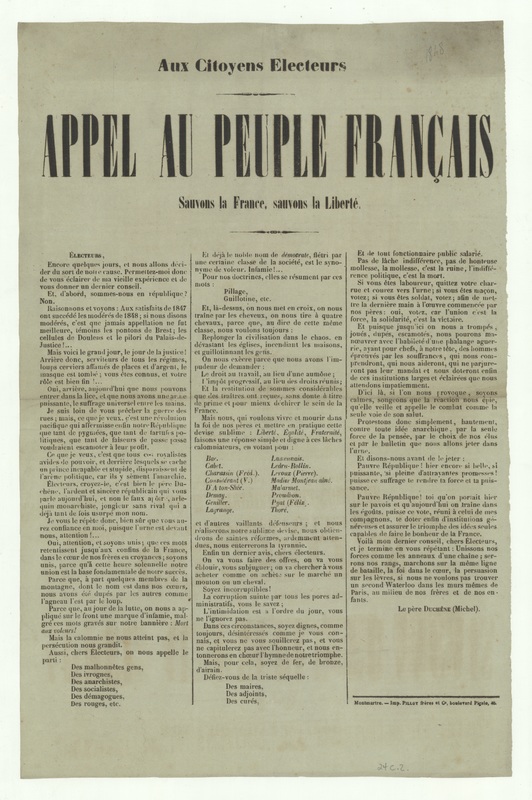Candidacy in the Second French Republic
“Sauvons la France, Sauvons la Liberté!” This desperate plea to “save France” from the tyranny of monarchy comes with the implicit suggestion that only a Republic could ensure liberty. For this republic to succeed, however, it needed competent and virtuous leaders. These posters — either written by the candidates themselves or on their behalf — reflect the burgeoning desire for experienced, honest, morally upright and capable leaders elected by an informed voter base. Essentially, the republican system was only as good as the men in charge. The 1848 revolution had transformed the divine right of the monarchy to rule over the people into a sacred duty to govern on behalf of the people. Thus, a new age of technocratic bureaucracy was born.



